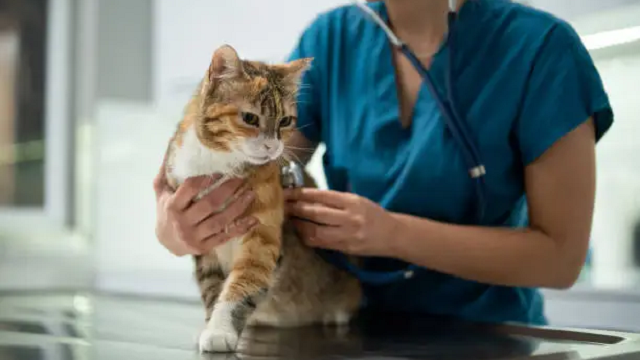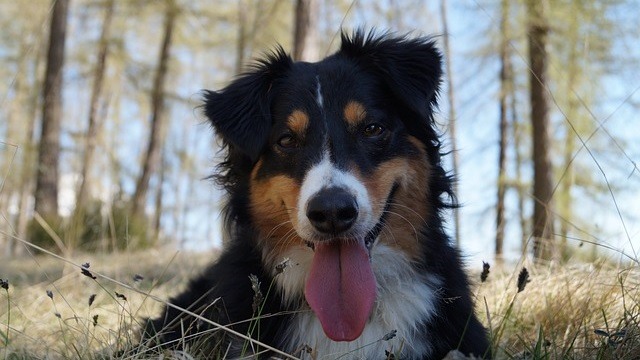8 Dog & Cat Myths, Debunked
Dogs and cats have been a big part of our lives for centuries. However, despite our long history togeter, there are still many misconceptions surrounding our pets. From beliefs about their behavior to ideas about their health, there are plenty of dog & cat myths out there…
Whether you’re a seasoned pet owner or thinking about adopting your first furry friend, it’s important to have accurate information so that you can provide the best possible care for your beloved pet. On this post, we’ll be diving into some of the most commonly believed pet-related myths and debunking them once and for all!
- Common pet myths can mislead owners about proper care and health of dogs and cats.
- Cats don't always land on their feet; falls from lower heights can be dangerous.
- Indoor pets still need deworming due to parasites brought inside by humans.
- A dry nose does not indicate illness in dogs; various factors affect moisture levels.
- Black cats are symbols of good luck in some cultures, contrary to popular belief.
Cats always fall on their feet
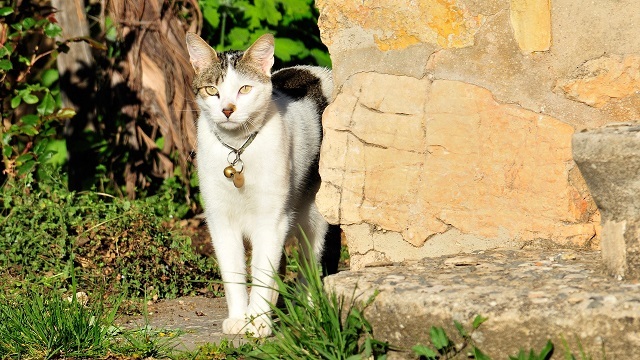
We have only one thing to say about that: “They wish!”. Unfortunately that’s not always the case, and that is why some people say that small falls can be worse than bigger ones.
When falling from lower heights, cats don’t have enough time to turn and land on their feet, so they can easily break a bone or two. That does not mean that a big fall is not a big deal, though! It is indeed, so be aware of any open windows!
My buddy doesn’t go outside, so they don’t need to be dewormed
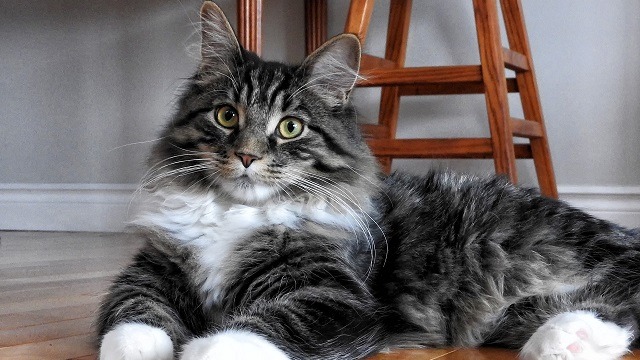
Wrong, wrong and guess what? Wrong again!
Even though your dog or cat might not go for a stroll outside (quite uncommon for dogs, but some toy breeds spend more time on the owner’s purse than on the floor), people can bring fleas and ticks inside with them.
Once the parasites are inside the household, they will seek their favourite environment, which is the animal’s coat and skin. If our furry friend is not protected against these awful tenants, they will quickly reproduce, giving rise to powerful infestations.
Concerning intestinal parasites: you can relax a little bit and deworm every 6 months, but only if your pet doesn’t know the taste of grass and fresh air!
Dogs with warm, dry noses are sick

It’s often believed that a healthy dog has a cold and wet nose. However, there is no link whatsoever between the moisture and temperature of the nose and any kind of sickness.
There are plenty of variables that can affect the wetness of the nose, like the temperature of the air or allergies. Regardless, if your buddy’s nose is constantly dry, cracking or running, get in touch with our vet team and we’ll figure out if it is cause for concern!
Dogs and cats can’t stand each other
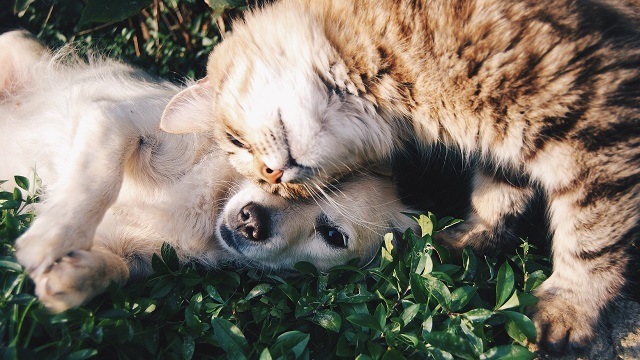
It is “common knowledge” that dogs hate cats, who in turn hate mice… Even the beloved Tom and Jerry used to play by these rules! But guess what? Once more, this constitutes an urban myth – in fact, we can even say it’s one of the most common dog & cat myths out there.
Canines and felines have quite different behavioural patterns, but who doesn’t? The trick here is to guarantee a proper introduction and socialization. Still we have to be realistic. If you own a 10-year-old cat who is used to living peacefully by themself, no wonder they don’t get along with the new frenetic puppy you’ve just brought home!
Rubbing your dog’s nose against their mess is the perfect teaching tool

Once again, myth! And this one is really important to demystify.
It is scientifically proven by veterinarian behaviourists that dogs only understand some conduct as wrong if reprimanded when it occurs. So when you come home to find out there has been a potty accident, it is unlikely that your pet will make the connection between what they did earlier and the nose rubbing, and so they won’t understand the punishment.
On the other hand, your dog can link your arrival to the punishment and therefore start getting nervous and afraid each time you get back home.
Cats only purr when they are happy
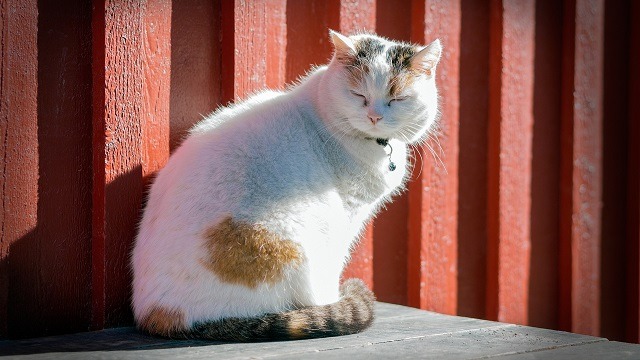
We bet you think this is true! It would be nice to believe so, but unfortunately there is only a half-truth to the premise.
Fact: cats do purr when feeling happy. However, there is a lot more going on with this delightful kitten soundtrack than you might reasonably expect, as it can also express nervousness, fear and stress. Curious? Here’s a more in-depth article looking into this subject – Why do cats purr?
Moving on to another misconception on this list of common dog & cat myths!
Black cats bring bad luck
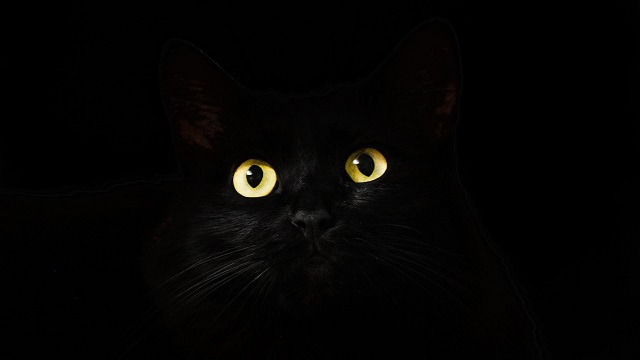
Big “false!” for this myth! Actually, did you know that in the Japanese culture, a black cat is a common symbol of good luck? It’s a shame that in many countries throughout Europe, as well as America, black cats are considered by some to be a bad omen and tortured during folklore festivities.
Ever wonder how mystic and secretive a black cat can be, with those wonderful big bright eyes brightly staring at you? Such a majestic specimen! If you’d like to learn more about this superstition and where the myth came from, check out our previous article: Are black cats bad luck?
Pregnant women should get rid of their cats
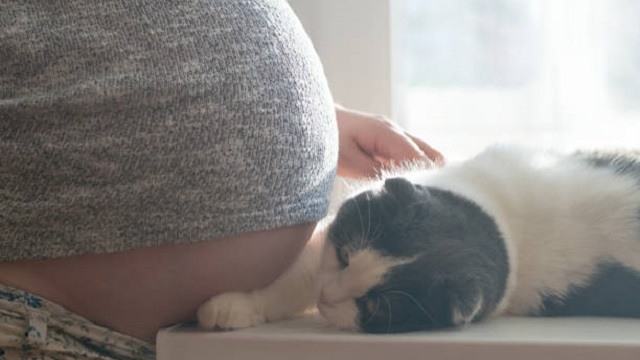
We know precisely why this belief exists, but we can assure you: if you are pregnant, you don’t have to give you cat away. So that is a myth.
Here goes the medical explanation: cats can carry an intestinal parasite called Toxoplasma gondii that can affect unborn children. This is why you should adopt some hygiene measures to reduce your risk of environmental exposure:
- Avoid changing cat litter if possible. If no one else can perform the task, wear disposable gloves and wash your hands with soap and water afterwards. Do it on a daily basis.
- Keep your cats indoor.
- Wear gloves when handling soil or sand outdoors, as either can be contaminated with cat feces.
The risk of getting the parasite from a badly washed raw lettuce is actually higher than from your cat’s litter box, because everyone routinely washes their hands after cleaning the box!
That’s it – 8 common dog & cat myths, debunked! If we didn’t take care of that one myth you are really eager to look into, just contact our vet team with your doubts, and they’ll gladly try to clarify it for you!
Maven Pet focuses on improving the quality of life of our pets with technology, using artificial intelligence (AI) to enable proactive pet care. By accurately collecting and monitoring pet data 24/7 and flagging any irregularities, Maven Pet empowers pet parents and veterinarians to stay ahead of potential health issues, ensuring the well-being and longevity of our beloved companions.


